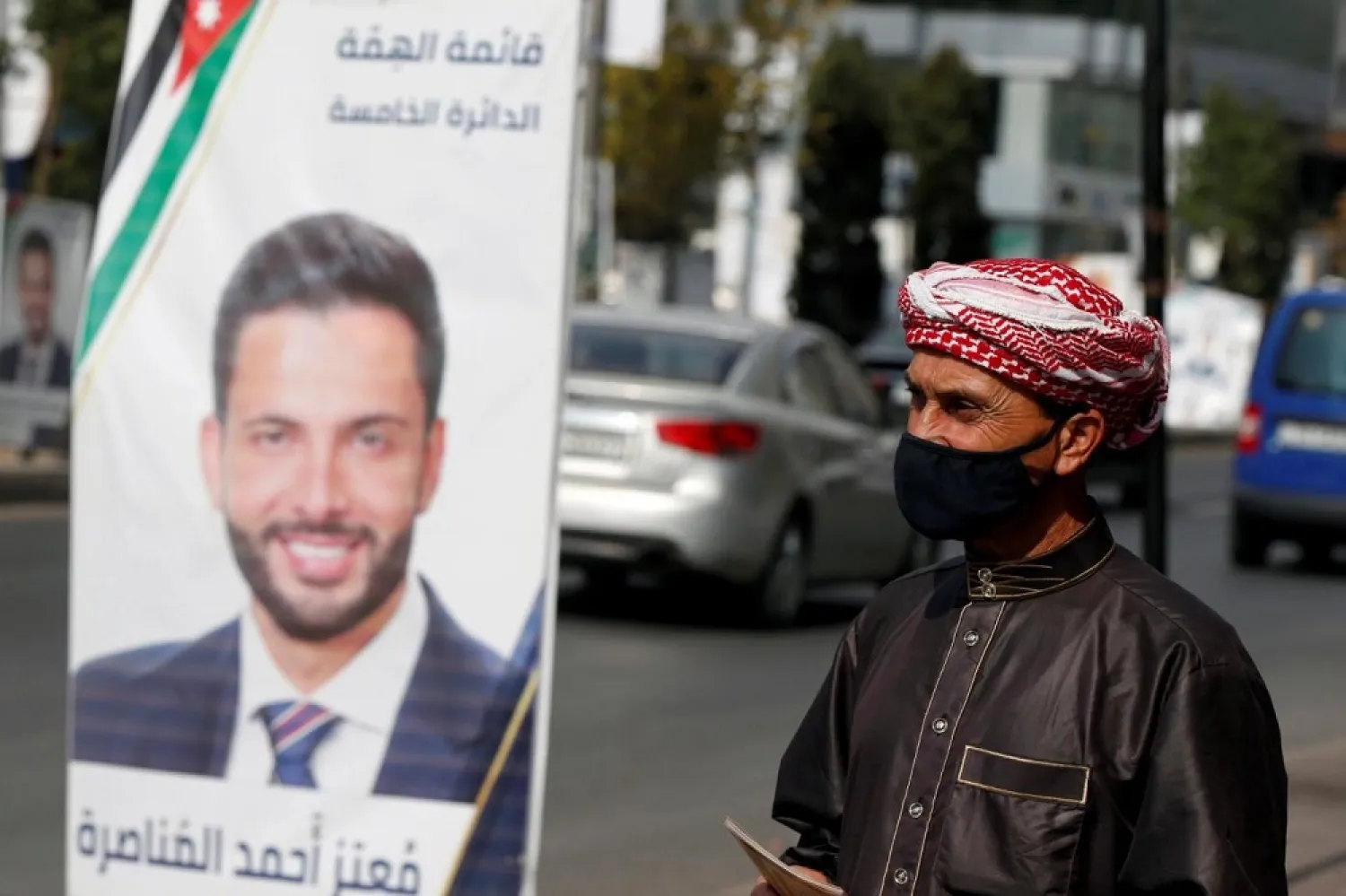Election silence took effect in Jordan on Monday ahead of the parliamentary elections scheduled for Tuesday.
Jordanians will head to polls despite the ongoing coronavirus pandemic and calls for the elections to be postponed, which have raised fears of a low turnout. The kingdom has been witnessing a spike in infections.
The Independent Electoral Commission (IEC) assured that health precautions will be in place and that it will prevent crowding at polling stations, calling on voters to respect the measures.
Soon after the stations will close in the evening, Jordan will go into a five-day 24-hour nationwide lockdown starting 10 pm on Tuesday and until Sunday morning.
A number of ministers told Asharq Al-Awsat that the government’s decision aims to prevent gatherings or possible protests after the results are announced, which could cause an increase in coronavirus cases.
Parliamentary candidates had resorted to electronic electoral campaigns after the authorities had banned other forms of promotions to curb the spread of the coronavirus.
The lack of traditional campaigns and popular apathy may lead to a low turnout. Traditional elites have refrained from participation or did not back candidates.
Candidates who were involved in campaigning failed to come up with innovative propaganda methods, leading to the emergence of vote buying.
The IEC recorded a number of violations that were mostly related to financial irregularities, or what is referred to as “black money,” and filed evidence-backed lawsuits against violators.
Amman’s third district is expected to witness a heated race as the Islah bloc, Together list (Maan), and lists affiliated with the left and nationalist parties are competing against lists backed by businessmen. The tight race has led to the emergence of vote buying.
A recent opinion poll revealed that 46.5 percent of Jordanians registered to vote will not participate in the elections, compared to 33.7 percent, while 19.8 percent said they have not made a decision yet. Fifty-three percent said that the coronavirus will have a significant effect on the turnout.
Jordan is still struggling to contain the spread of COVID-19, with 104,802 coronavirus cases and 1,181 deaths since it was first detected in the country in early March.
Some 4.5 million people eligible to vote will cast their ballots across 1,880 polling stations, choosing from 1,674 candidates running on 294 lists, to fill 130 seats in parliament. Fifteen of the seats are reserved for women.









